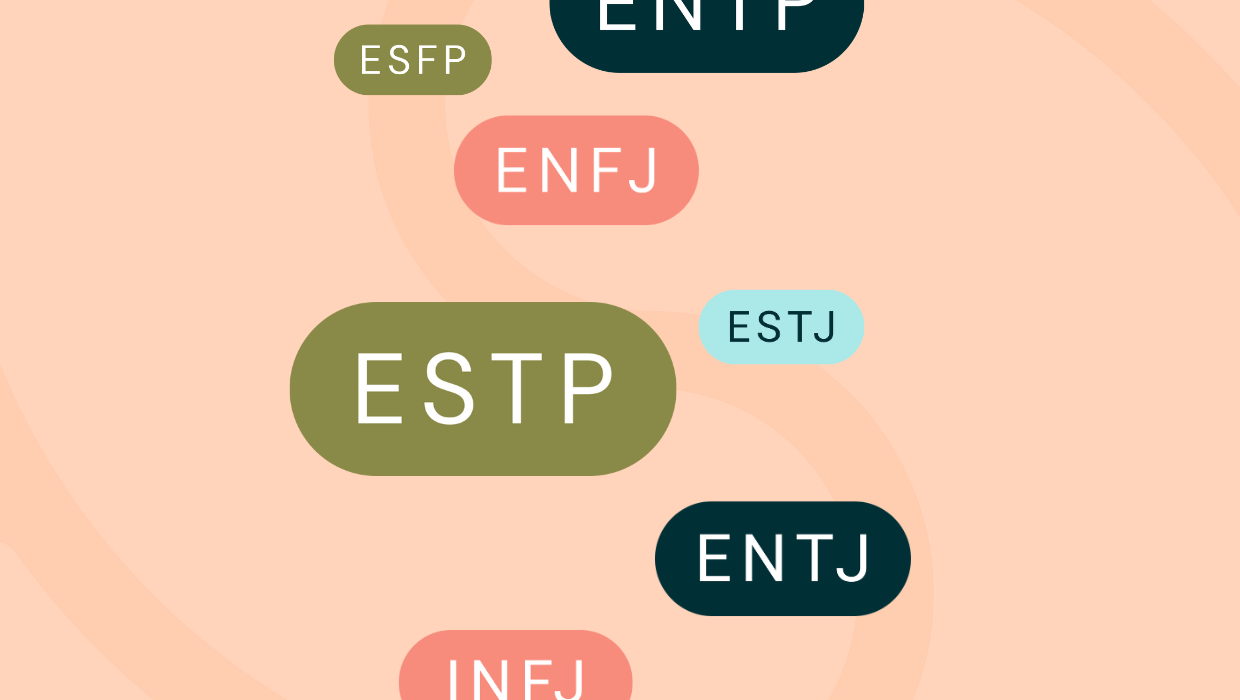The Most Narcissistic Personality Types Ranked
Today we rank the 16 personality types from least to most narcissistic. We also assess how narcissism typically manifests in each type. We all have our strengths and weaknesses, but some of us are just more likely to be narcissistic than others.

Today we rank the 16 personality types from least to most narcissistic. We also assess how narcissism typically manifests in each type. We all have our strengths and weaknesses, but some of us are just more likely to be narcissistic than others.
Narcissism is a personality trait that is characterized by grandiose behavior, a need for admiration, being preoccupied with power and success, and a lack of empathy. Narcissistic people are often charismatic and charming but can also be quick to take offense and hold grudges.
Like all personality traits, narcissism and the qualities associated with it exist on a spectrum. So while some people may have several narcissistic traits that are extreme enough to interfere with their everyday lives, others may only have a few narcissistic qualities that are milder.
Just remember, this blog post focuses on the unhealthy and extreme personality traits associated with each type. If a personality type is higher up on the list, it doesn’t mean that every person of this type is automatically a narcissist. In fact, narcissists are rare.
So, without further ado, here are the 16 personality types ranked from least to most narcissistic. If you don’t know your personality type, you can take our free 5-minute personality test.
Least to most narcissistic personality types

16. ISFJ
The least narcissistic personality type is ISFJs. ISFJs are empathetic, supportive, and helpful people. They are not self-centered or egotistical. ISFJs focus on taking care of others and making sure everyone is happy. They are loyal and protective of their loved ones. ISFJs are typically very humble people who do not seek attention or recognition. However, like all personality types, they have the potential to be narcissistic if they aren’t well-balanced. ISFJs are perfectionists and if this is taken to the extreme, they can become narcissistic. They could set unrealistically high standards for themselves, for others, and for life events. These impossible demands can lead to narcissistic ISFJs feeling superior to others because, in their eyes, they are the only ones who can meet these standards. In addition, they can have tendancies to need excessive validation from others. However, ISFJs don’t tend to have many traits that are associated with narcissism, so it’s rare to find narcissistic versions of this type.

15. ISTP
The second least narcissistic personality type is ISTP. ISTPs are calm, logical, and practical individuals. They often prefer to stick to themselves and can be quite independent. However, that doesn’t mean that they’re immune to narcissism. Narcissistic ISTPs lack responsibility for their actions. They take risks without thinking about the consequences and can be very self-centered. In addition, they are quick to blame others and have a very low tolerance for criticism. However, ISTPs don’t typically seek out the admiration of others like some of the other narcissistic types on this list.

14. ESFJ
ESFJs are warm, caring, and compassionate individuals who are not typically narcissistic. They often put the needs of others above their own. They are also very in tune with the emotions of those around them and can be quick to offer support. However, an ESFJ’s need to be liked and approved of by others can sometimes lead to narcissism. Narcissistic ESFJs seek out constant admiration and external validation. They have an inflated sense of self-importance and they have a deep desire to be loved by everyone. They tend to be involved in many different social activities, which they use as a source of attention, and they need everyone to see them in a positive light. While ESFJs are typically generous and giving, narcissistic ESFJs are much more self-centered and destructive.

13. ISTJ
ISTJs are not your typical narcissists. They are quiet, practical, and logical individuals. They often prefer to stick to themselves and can be quite independent. However, that doesn’t mean they’re immune to narcissism. ISTJs can be self-righteous and set in their ways. They can also be insensitive to the needs of others. In some cases, their confidence can cross the line into arrogance. ISTJs are often attracted to jobs that give them a sense of power or authority. In this position, an unhealthy ISTJ has the potential to abuse their power and use it to control those around them. Narcissistic ISTJs also disregard people’s feelings and have a difficult time empathizing with them. Whilst this isn’t your typical ISTJ, it’s important to be aware that this type is capable of narcissism.

12. INFP
INFPs are not your typical narcissistic personality type. However, like all personality types, they can have certain qualities that can lead to narcissism. INFPs are compassionate and idealistic individuals who often champion the underdog. They are also very in tune with their own emotions and can be easily hurt by the actions of others. These qualities make them wonderful friends and allies. However, they are highly focused on their own emotions. This can lead to them being self-absorbed and having an inflated sense of self. They are quick to take offense and hold grudges, particularly when someone has hurt their ego. This means they sometimes cut people out of their lives for the smallest slight. While INFPs are typically gentle and empathetic, narcissistic INFPs are much more self-centered and destructive.

11. ESFP
The eleventh most narcissistic personality type is ESFP. ESFPs are energetic, fun-loving, and spontaneous individuals. They live for the moment and enjoy being surrounded by others. They are often the life of the party. However, their need for attention and approval can sometimes lead to narcissism. Narcissistic ESFPs seek out constant attention and validation from others. They have an almost celebrity-like view of themself and want to ensure that they are always in the spotlight. They like to be involves in many different social activities and they used this as a way to seek out adoration from those around them. While ESFPs are typically outgoing and fun, narcissistic ESFPs take this to an extreme.

10. ENFP
The tenth most narcissistic personality type is ENFP. ENFPs are charismatic, optimistic, and enthusiastic individuals. They have an infectious zest for life that they often want to share with others. ENFPs are often very idealistic and they aren’t always in touch with the real world. They can also be impulsive and prone to acting on their emotions. While these qualities make them very charming in some ways, they can also lead to narcissism. Narcissistic ENFPs tend to be self-centered and they are highly focused on self-gratification. In addition, they have a need for admiration and external validation. They use their charisma and charm to garner constant attention and approval from others.

9. ESTJ
As the ninth most narcissistic personality type, ESTJs aren’t typically prone to narcissism but they can have certain tendencies that lead to it. ESTJs are very logical and practical. They like to be in control and can be quite bossy. They often have strong opinions and can be inflexible. While these qualities can be helpful in leadership roles, they can also make ESTJs seem domineering and overbearing. If an ESTJ’s need for control is not met, they can become narcissistic. They may exhibit grandiose behavior, an inflated sense of self-importance, and a strong need for admiration. They might abuse their positions of power and take advantage of others.

8. INTP
The eighth most narcissistic personality type is INTP. These individuals are highly intelligent and analytical. They are often perceived as cold, aloof, and unemotional. However, INTPs can be very passionate about their interests and ideas. They are often very good at debating. However, they can have a strong need to be right. Given they are often the smartest person in the room, an INTP can seem arrogant and insensitive to others. An unhealthy INTP’s narcissism tends to manifest as an inflated sense of self-importance and entitlement. They use their intelligence to put themselves on a pedestal and belittle others.

7. INFJ
The seventh most narcissistic personality type is INFJ. These individuals are typically idealists who live in their own world. INFJs are compassionate, empathetic, and altruistic, but they also have a dark side. Unhealthy INFJs can have an inflated sense of self-importance and believe that they are better than others. They can use their emotional intelligence and manipulation skills to take advantage of others. An unhealthy INFJs unique combination of idealism and self-righteousness can lead them to become judgmental and narcissistic. They can disguise their narcissism behind a facade of altruism and concern for others. However, their true motive is often to feel superior to others and they use their people-skills to manipulate others.

6. INTJ
INTJs are the sixth most narcissistic personality type. People with this personality type are analytical, independent, and ambitious. They are always several steps ahead of everyone else and they love to be in control. However, INTJs can also be cold, calculating, and insensitive. When these qualities are taken to the extreme, INTJs can become narcissists. Narcissistic INTJs often try to one-up everyone else. They are also very opinionated and always think they’re right. Their logic and reasoning prevails and they dehumanize others. Narcissistic INTJs often view people as objects or pawns in their chess game, often useing them to get ahead.

5. ISFP
ISFPs are the fifth most narcissistic personality type. ISFPs are creative, charming, and sensitive. They’re also very in touch with their emotions. However, unhealthy ISFPs can be self-centered, dramatic, and ignorant to the needs of others. They can be so focused on their own emotions that they’re unable to see how their actions might be impacting those around them. ISFPs can also be very impulsive and they may not think about the consequences of their actions before they act. This impulsivity and selfishness combined with a lack of empathy can be a recipe for disaster. Narcissistic ISFPs only care about themselves and their own needs. Narcissistic ISFPs engage in hedonistic behaviors and they are self-indulgent.

4. ENTP
ENTP is another personality type that has narcissistic tendencies. ENTPs are confident, charming, and intelligent. They love being the center of attention and they enjoy playing devil’s advocate. However, unhealthy versions of this personality type can also be manipulative, argumentative, and insensitive. An ENTP’s love for debating and winning can make them steamroll over other people’s opinions. They can also be arrogant and think they’re always right, making it hard for them to listen to others. Narcissists have to be right, they have to be the best, and they love to compete. There’s no way for them to be wrong. They will always find a way of justifying their actions and wrongdoings by twisting words. So an unhealthy ENTP personality type can definitely exhibit narcissistic qualities.

3. ENFJ
The third most likely personality type to be a narcissist is ENFJ. ENFJs are outgoing, compassionate, and supportive. They love helping others and they’re natural-born leaders. ENFJs thrive in positions where they are taking charge and helping others at the same time. At the extreme end of the spectrum, ENFJs can become self-absorbed, manipulative, and egotistical. They can use their charm and ability to connect with people and then manipulate them. Narcissistic ENFJs love to be worshipped and they can be highly manipulative. They also love to have an entourage of people they can control and who will do their bidding. Don’t be surprised if you see an unhealthy ENFJ leading a cult one day.

2. ENTJ
ENTJs are the second most narcissistic personality type. ENTJs are ambitious, confident, and successful. They love to be in charge and they’re natural-born leaders. However, when these personality traits are taken to the extreme, ENTJs can become domineering, controlling, and egotistical. They can also be insensitive to other people’s feelings and they can be judgmental. An unhealthy ENTJ’s need for power and superiority over their peers is typical narcissistic behavior. They sometimes use their position of authority to belittle or bully others. They might also try to control the people around them in order to feel more secure and important. Narcissists put themselves on a pedestal which is not unheard of with ENTJs.

1. ESTP
ESTPs win the title for the most narcissistic personality type. That doesn’t mean all ESTPs are narcissists, but this type is more likely to display narcissistic tendencies than any other. ESTPs are charming and outgoing, and they love to be the center of attention. However, classic unhealthy ESTP personality traits include being manipulative, egotistical, and self-centered. Unhealthy ESTPs can have a grandiose view of themself. They can also lack empathy and compassion. These personality traits combined mean toxic ESTPs can have an inflated sense of self and entitlement. As narcissists, they don’t care about how their words or actions might hurt others. Their only concern is for themselves and what they want in that moment. And they have the charisma and energy to get it.
So, which personality type is the most narcissistic? ESTPs and ENTJs have the potential to be the most narcissistic. They are outgoing, confident, and love to be the center of attention. ESTPs and ENTJs are also charming and persuasive. They can be very manipulative and use their charm to get what they want. They are also logical and some unhealthy people can lack empathy.
Ultimately, however, all personality types have the potential to be narcissistic. It all depends on the individual and their level of security in themselves and their self-awareness.
You can learn more about the unhealthy personality traits of each type by checking out the most manipulative personality types ranked.
You can also find our rankings for the least to most loving personality types.




